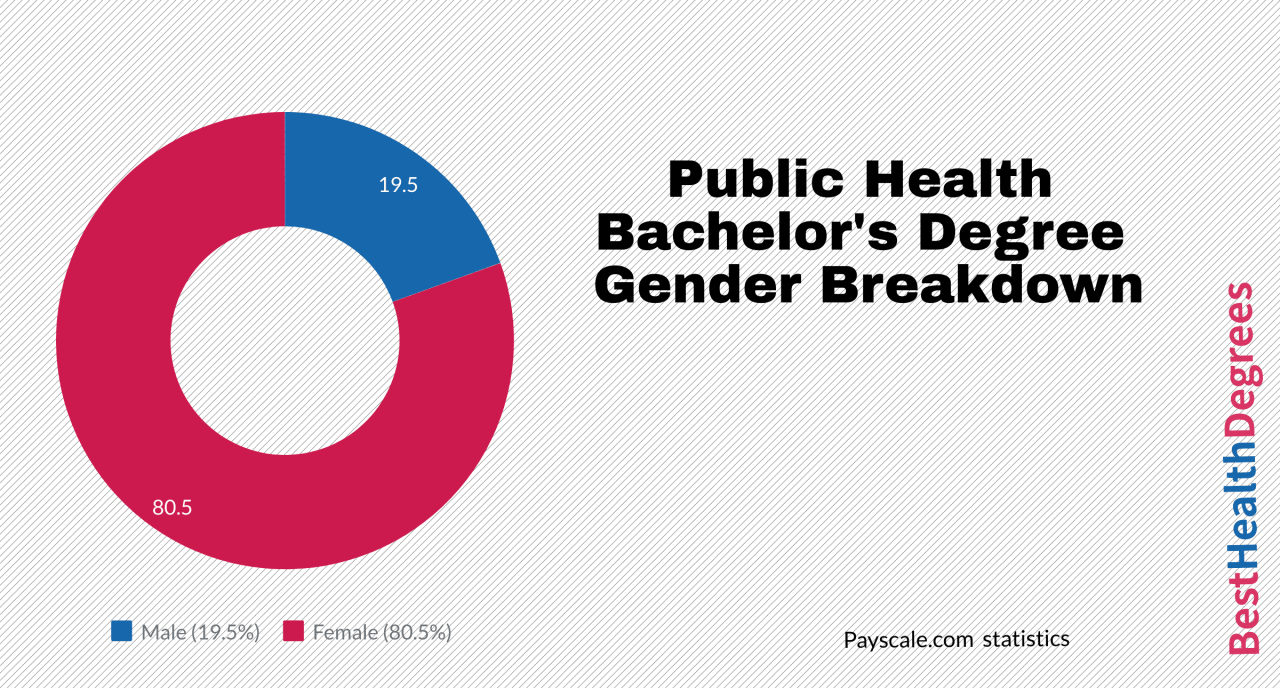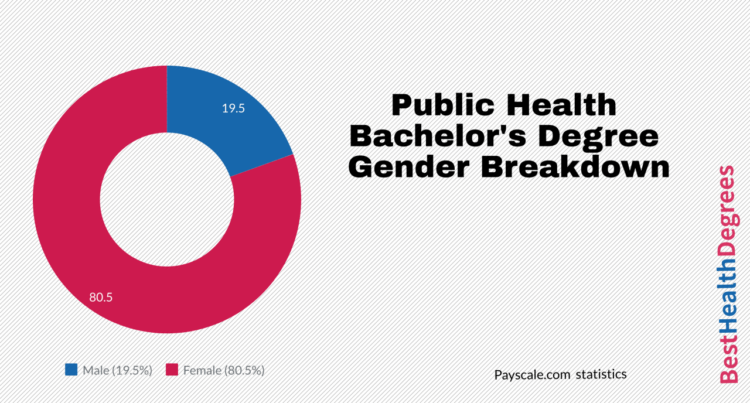
Public Health Degree Overview
A bachelor’s degree in public health is an interdisciplinary field that focuses on improving the health and well-being of populations. It provides a comprehensive understanding of the factors that influence health, such as environmental, social, and behavioral determinants. The program prepares students to identify, analyze, and address public health issues through evidence-based interventions.
Core Curriculum and Knowledge Areas
The core curriculum typically includes courses in:
– Epidemiology: Study of the distribution and patterns of health-related states or events in a population.
– Biostatistics: Application of statistical methods to public health data to draw inferences about populations.
– Environmental Health: Study of the relationship between the environment and human health.
– Social and Behavioral Sciences: Examination of the social, cultural, and behavioral factors that influence health.
– Health Policy and Management: Understanding of the policies, systems, and organizations that shape public health practice.
Career Paths and Job Opportunities
Graduates with a public health degree have a wide range of career opportunities in:
– Government agencies (e.g., Centers for Disease Control and Prevention, local health departments)
– Non-profit organizations (e.g., American Red Cross, World Health Organization)
– Healthcare settings (e.g., hospitals, clinics)
– Research institutions (e.g., universities, research centers)
– Consulting firms
– Policymaking and advocacy organizations
Core Concepts in Public Health
Public health encompasses a wide range of disciplines, each with its unique focus and set of principles. Understanding these core concepts is crucial for comprehending the field and its impact on society.
Epidemiology
Epidemiology is the study of the distribution and determinants of health-related states or events in a population. It investigates the causes of disease, the patterns of its occurrence, and the factors that influence its prevalence and spread. Epidemiologists use data to identify risk factors, develop preventive measures, and evaluate the effectiveness of public health interventions.
- Example: A study conducted by the Centers for Disease Control and Prevention (CDC) found that people who smoke are more likely to develop lung cancer than those who do not smoke.
Biostatistics
Biostatistics is the application of statistical methods to health-related data. It provides tools for analyzing data, drawing inferences, and making predictions about health outcomes. Biostatisticians use statistical techniques to evaluate the effectiveness of treatments, design clinical trials, and identify trends in health data.
- Example: A clinical trial conducted by a pharmaceutical company found that a new drug was effective in reducing the risk of heart disease in patients with high cholesterol.
Health Promotion
Health promotion is the process of enabling people to increase control over their health and its determinants. It focuses on improving health outcomes through interventions that target individual behaviors, social factors, and environmental conditions. Health promotion programs aim to prevent disease, promote healthy lifestyles, and create supportive environments for health.
- Example: A community-based health promotion program implemented in a low-income neighborhood provided access to healthy food, physical activity classes, and smoking cessation support, leading to improved health outcomes in the community.
Ethical Considerations in Public Health Decision-Making
Public health decisions often involve complex ethical considerations, as they may impact the health and well-being of entire populations. Ethical principles such as autonomy, beneficence, non-maleficence, and justice must be carefully weighed when making decisions about public health interventions and policies.
- Example: A public health official may need to balance the individual’s right to make decisions about their own health (autonomy) with the potential harm that their actions could have on others (non-maleficence).
Public Health Practice

Public health practice encompasses the implementation of public health principles and interventions to protect and improve the health of populations. Public health professionals work in various settings, including government agencies, non-profit organizations, and community health centers.
Public health professionals play a crucial role in addressing health issues at the local, state, and national levels. They conduct research, develop and implement policies, and provide education and services to promote health and prevent disease.
Public Health Settings
Public health professionals work in a variety of settings, including:
- Government agencies: Local, state, and federal government agencies play a major role in public health, providing funding, developing policies, and implementing programs to improve the health of the population.
- Non-profit organizations: Non-profit organizations play a vital role in public health, providing services such as health education, disease prevention, and advocacy for health policies.
- Community health centers: Community health centers provide primary and preventive care to underserved populations, focusing on health promotion and disease prevention.
Research in Public Health
Research is crucial in public health as it provides the evidence base for decision-making, policy development, and program implementation. It helps identify health problems, assess risk factors, and evaluate the effectiveness of interventions.
Public health research employs various methods, including quantitative approaches such as surveys, experiments, and observational studies. These methods allow researchers to collect and analyze numerical data to draw conclusions about populations and health outcomes. Qualitative approaches, such as interviews, focus groups, and ethnography, provide insights into the lived experiences, perceptions, and behaviors of individuals and communities.
Evidence-Based Decision-Making
Evidence-based decision-making in public health involves using the best available scientific evidence to inform policy and practice. This approach ensures that decisions are based on rigorous research rather than personal opinions or anecdotal evidence. It promotes transparency, accountability, and the effective use of resources in public health programs.
Global Health
Public health in a global context presents both challenges and opportunities. The interconnectedness of the world means that health issues can quickly spread across borders, requiring international cooperation to address them. Additionally, global health initiatives can promote equity and access to healthcare for underserved populations.
Challenges in Global Health
- Health Disparities: Health outcomes vary significantly across countries and regions, with some populations facing greater burdens of disease and limited access to healthcare.
- Emerging Infectious Diseases: Globalization has increased the risk of emerging infectious diseases spreading rapidly, requiring global surveillance and response systems.
- Climate Change: Climate change is impacting health through extreme weather events, rising sea levels, and changes in disease patterns.
Opportunities in Global Health
- Collaboration and Knowledge Sharing: International organizations and partnerships facilitate the sharing of best practices, research, and resources to improve health outcomes globally.
- Global Health Initiatives: Initiatives such as the Sustainable Development Goals and the Global Fund to Fight AIDS, Tuberculosis and Malaria provide funding and support for health programs in developing countries.
- Equity and Access: Global health initiatives aim to promote equity in health outcomes and improve access to healthcare for underserved populations.
Role of International Organizations
International organizations, such as the World Health Organization (WHO), play a crucial role in global health. They provide leadership, set global health standards, coordinate international responses to health emergencies, and support countries in strengthening their health systems.
Ethical Considerations
Global health interventions raise ethical considerations, including:
- Respect for Autonomy: Ensuring that individuals and communities have the right to make decisions about their own health.
- Equity and Justice: Promoting fair and equitable distribution of health resources and benefits.
- Cultural Sensitivity: Respecting and understanding the cultural beliefs and practices that influence health behaviors.





